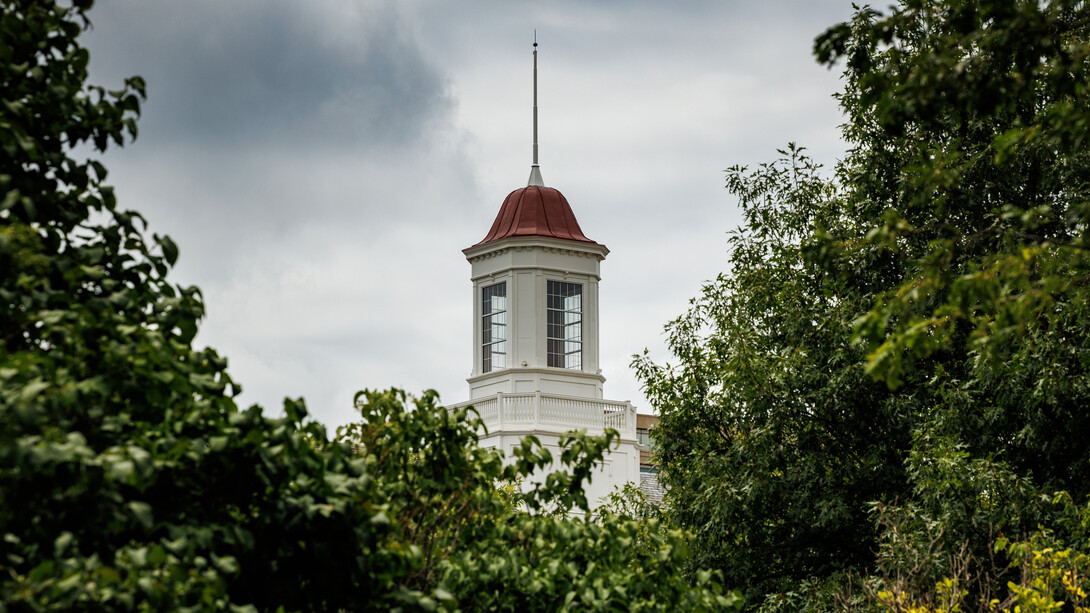
International Open Access week brings the scholarly community together to make Open Access a new norm in scholarship and research. This year's theme is “Who Owns Our Knowledge?”
The 2025 theme asks a pointed question about the present moment and how, in a time of disruption, communities can reassert control over the knowledge they produce and share.
The ways in which University Libraries addresses this question are many, with Open Access publishing agreements and the Digital Commons institutional repository; with SANDY, Nebraska’s Research Data Repository; and being a key partner in the Successful Teaching with Affordable Resources initiative, which facilitates an Open Educational Resources seed grant program.
Publishing agreements
Since 2023, the Libraries have entered into publishing agreements with selected major academic publishers to cover open access article processing charges that would otherwise need to be paid by authors, while ensuring that the authors retain rights over their work.
An increasing number of university authors have been taking advantage of the opportunity to make their publications openly accessible. Between July 2023 and June 2024, 145 articles were published by UNL authors under these agreements; in the following 12 months, this number increased to 222. The most popular publisher in this regard has been Wiley, with 262 open access articles published from UNL since July 2023, followed by Cambridge University Press and IOP Press, with 34 and 38 articles respectively.
A couple of these agreements have remained largely untapped — to date, no open access articles have been published by UNL authors under the agreements with the Microbiology Society and the Company of Biologists. Additionally, authors have taken advantage of APC discounts to publish 24 articles in Elsevier journals at a reduced cost. To see the full list of publishers covered by UNL’s publishing agreements, visit UNL’s OA Publishing Agreements Guide.
Repositories
Established in 2005 as a collaborative service of University Libraries, the goal of the Digital Commons institutional repository is to provide free access to locally created scholarly works. Full-text articles are made available to a worldwide audience.
Nebraska's Digital Commons has the third-most items among institutional resposities in the United States and its content experiences the greatest number of downloads. In January 2025, downloads surpassed 100 million and people from all over the world engaged with UNL scholarly works.
Digital Commons also provides a platform for faculty to publish their own open access journals. The Nebraska Journal on Advancing Justice, from the College of Law, is an online, peer-reviewed and open access law journal.
Danielle Jefferis, associate professor of law and faculty editor of the journal, said open access publishing benefits the legal field in several ways.
"Open access publishing can broaden the richness and depth of legal scholarship,” she said. “The legal field could benefit from open access research, as well — lawyers, judges, advocates in the community could all benefit from the ideas explored in open access legal scholarship.”
In late 2024, the University Libraries launched a new research data repository, SANDY: Stewarding Nebraska Data that accepts research data for public access from affiliates in the University of Nebraska system. SANDY adheres to the FAIR data ecosystem standard and meets federal government expectations for repositories to share research outputs from federally funded research.
The new repository provides researchers with statistics of views, downloads and clicks on their data sets, and will provide persistent identifiers so data can be cited and shared easily. Deposits in the repository have been downloaded thousands of times. To add to the repository, follow the instructions in the Data Repository Guide.
Open educational resources
UNL faculty who use, adapt or create their own Open Educational Resources with support from a STAR OER seed grant have saved students more than $2 million in textbook costs since 2023. From 2023-2025 OER have been used in at least 567 UNL classes, increasing pedagogical flexibility for instructors and making education more affordable for more than 20,000 students.
The Libraries has been a longtime partner in the campus-wide STAR initiative which, in addition to seed grants, offers support and consultation to faculty interested in integrating OER in their courses. The Libraries’ OER guide provides information for instructors interested in OER, including how to find and evaluate existing resources, and guidance focused on copyright and licensing.
How to get involved
- Publish Open Access in a journal covered by an OA publishing agreement
- Submit your vita to include your published research in the Digital Commons
- Submit your data for publication in SANDY
- Consider applying for an OER seed grant







